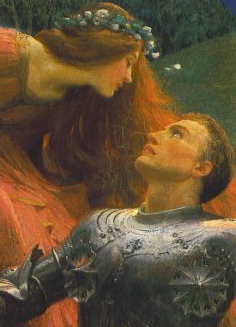A Strauss rarity
Richard Strauss’s Guntram is not to be confused with Saint Guntram, who was the king of Burgundy from 561 to 592. Rather, he was the young Strauss’s own concoction for his first opera, written very much under the influence of Wagner in 1894, and revised in 1940.
Richard Strauss’s collaboration with the librettist Hugo von Hofmannsthal is legendary, and was, in every respect, a good thing, given the rather far-fetched libretto that Strauss himself wrote for Guntram – although, it has to be said, no more far fetched than many much more famous operas. Donal Henehan, writing in the New York Times on January 21, 1983 after the American premiere of the opera at Carnegie Hall, describes it this way:
“[The libretto] tells an unconvincing tale of the gentle minstrel-knight Guntram, who sets out to promote universal brotherhood through song but accidentally murders the husband of the woman he loves. In the best Romantic tradition, he ends by renouncing fleshly pleasures and going off to spend his days contemplating his guilt.”
The wonder lies in the music itself. Just as it is thrilling to hear the musical voice emerging in the early symphonies of composers like Schubert or Dvorak, it is intriguing to hear the first iterations of Strauss’s later operas – Der Rosenkavalier, Die Frau ohne Schatten, Arabella, Daphne – threaded through Guntram. He also quotes from this first opera in his autobiographical tone poem, Ein Heldenleben.
Bravo to Washington Concert Opera and their Artistic Director and conductor, Antony Walker, for mounting only the second performance in the States of this rare Strauss opera. They will present a concert version in Lisner Auditorium at George Washington University in D.C. on Sunday, March 1st at 6.00 p.m.
More details here: http://www.concertopera.org/index.php/current_season/about_opera/guntram/
Tags:opera, Richard Strauss






